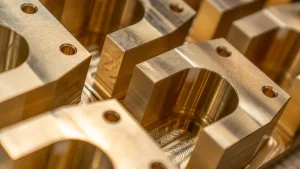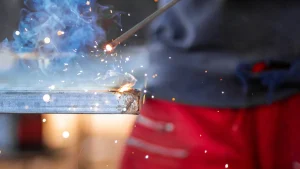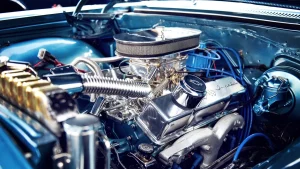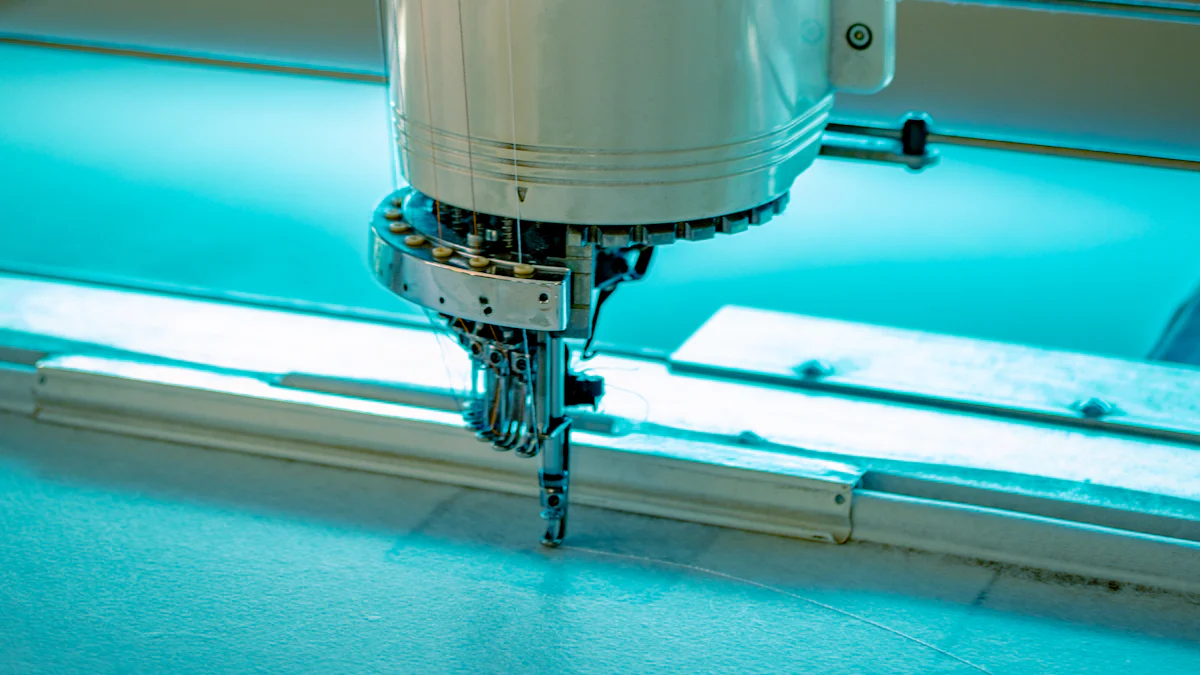
PSS/ICPの特長 エッチングキャリアは、半導体製造の重要なツールとして機能します。 これらのキャリアは、プラズマエッチング中にウェーハを強力にサポートし、精度と一貫性を要求するプロセスを提供します。 安定性を確保することで、高品質の半導体デバイスにとって重要な材料除去の均一性を維持するのに役立ちます。 彼らの設計は熱および耐食性を優先し、それらに血しょうエッチングの粗い条件のために理想的にします。 精度と効率性を高める能力を持つPSS/ICPエッチングキャリアは、先進的な半導体技術の要求を満たしながら、生産のスケールアップに重要な役割を果たしています.
要点
- PSS/ICPの特長 エッチングキャリアは、プラズマエッチング中にウェーハの安定性を維持し、材料除去の精度と均一性を確保するために不可欠です.
- これらのキャリアを使用して、エッチングプロセスの欠陥を大幅に削減し、より高い収量とより良い品質の半導体デバイスにつながります.
- キャリアとウェーハの適切な準備と整列は、エッチングプロセスの最適な結果を達成するために重要です.
- キャリアとエッチング機器の定期的なメンテナンスは、寿命を延ばし、生産効率を向上させるために不可欠です.
- 先端材料の活用や特定の用途のカスタマイズなど、キャリア設計のイノベーションは、半導体製造を変革しています.
- センサーとAIによる最適化によるスマートキャリアの統合は、エッチングプロセスを革命化し、精度を高め、廃棄物の削減を実現します.
- PSS/ICPエッチング技術の進歩について知った滞在は、急速に進化する半導体業界で競争を維持するためにメーカーにとって重要なことです.
PSS/ICPの理解 PSS/ICP エッチキャリアの獲得と役割
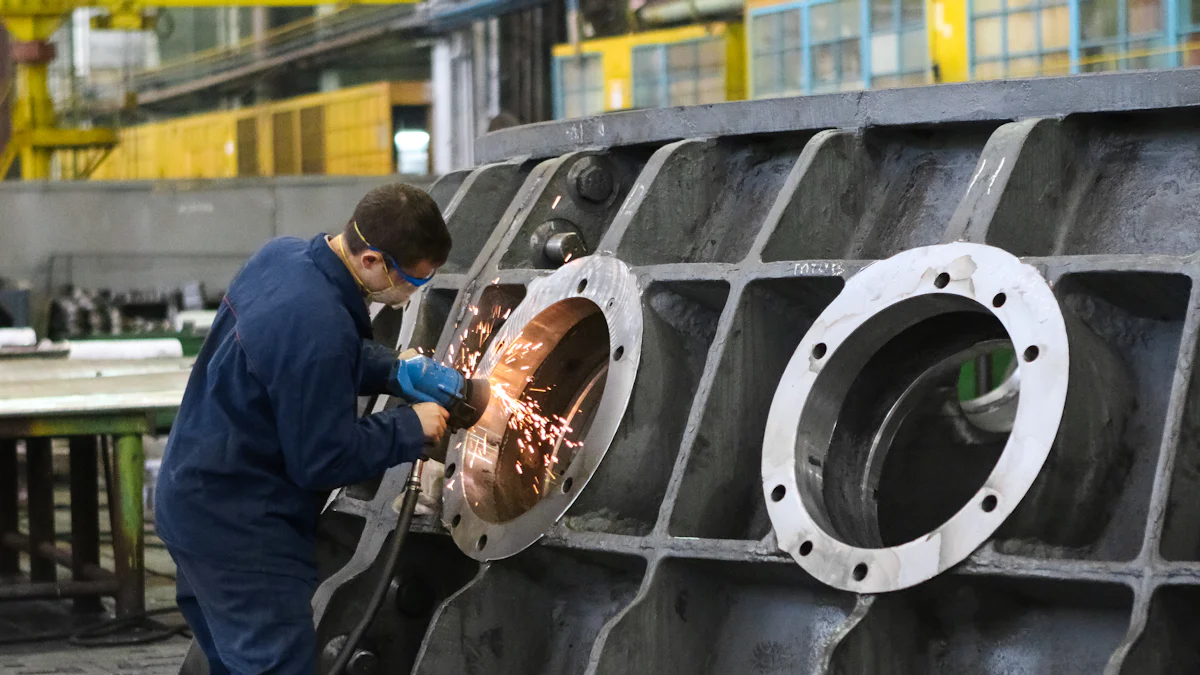
PSS/ICPエッチングとは?
プラズマソースシリコン(PSS)エッチングの概要
プラズマ光源シリコン(PSS)エッチングは、半導体製造に使用される特殊な加工です。 プラズマの使用により、シリコンウェーハの材料を高精度に除去します。 プラズマは、多くの場合、問題の4つの状態と呼ばれ、ウェーハの表面と反応できるイオン化されたガスで構成されています。 この反応により、ウェーハの複雑なパターンを作成するために不可欠である制御された材料の除去が可能になります。 PSSエッチングは、精度を維持しながら複雑な設計を処理する能力のために特に価値があります.
メーカーは、大量生産の一貫した結果を達成するために、この技術に依存しています。 プロセスは、各ウェーハが高度な半導体デバイスに必要な正確な仕様を満たしていることを確認します。 PSSエッチングにより、スマートフォンやパソコンなどの電子機器などの近代的な技術を支える部品を生産できます.
誘導結合血漿(ICP)エッチングの基本
誘導カップルプラズマ(ICP)エッチングは、次のレベルに精度をとります。 この方法は、高密度プラズマソースを使用して、優れたエッチング性能を実現します。 プラズマは、放射周波数(RF)ジェネレータがプラズマを作成するためにコイルを出力する誘導カップリング機構によって生成されます。 このセットアップは、ウェーハ全体の材料除去率と均一性を含むエッチングプロセスを適切に制御することができます.
ICPエッチングの1つのスタンドアウト機能は、繊細な構造を処理する能力です。 例えば、 シリアル210IL ICP-RIEエッチングシステム ヘリカルアンテナと2 MHz ICP RF ジェネレータを使用して、高密度プラズマを生成します。 これにより、優れた均一性と高いエッチング速度が確保され、高度な半導体アプリケーションに最適です。 そのようなシステムは、ICPエッチングが精度とスケーラビリティに対する業界の要求をサポートする方法を示しています.
プロセスにおけるPSS/ICPエッチングキャリアの役割
エッチング中のウェーハをサポート
PSS/ICPの特長 エッチングキャリアは、ウェーハの安定的なサポートを提供することでエッチングプロセスにおいて重要な役割を果たしています。 これらのキャリアは高温および腐食性の環境を含む血しょうエッチングの粗い条件に抗するために設計されています。 ウェーハを安全に保持することで、工程中に動きやずれを防止します。 この安定性は、特に複雑なパターンや小さな幾何学を扱うときに、一貫した結果を達成するために不可欠です.
半導体製造で一般的に使用されるバッチ処理システムは、多くの場合、これらのキャリアに依存します。 たとえば、HB-LEDの製作では、PSSのエッチングキャリアは、高品質のデバイスを製造するために重要な管理されたGaNエッチングを保証します。 堅牢な設計により、ウェーハへのダメージのリスクを最小限に抑え、工程全体の効率性を高めます.
材料の取り外しの均等性そして精密を保障します
半導体製造において、均一性と精度が非交渉可能です。 PSS/ICPの特長 エッチングキャリアは、ウェーハの表面をプラズマに露出しても、これらの側面に大きく貢献します。 この均一露出は不均等な材料の取り外しを、最終製品に欠陥か不整合性をもたらすことができます防ぎます.
高度のエッチング システム、のような Corial 360IL ICP-RIEのエッチング システム更にこの精密を高めて下さい。 これらのシステムは、プラズマとウェーハ間の相互作用を最適化する機能でカスタマイズできます。 高品質のエッチングキャリアと組み合わせると、現代の半導体設計の厳格な要件を満たす、優れた結果が得られます.
PSS/ICP エッチキャリアの能力を高度なエッチング技術と組み合わせることで、次世代デバイスに必要な精度と信頼性を実現します。 これらのキャリアは、ウェーハをサポートしているだけでなく、エッチングプロセスの完全性を維持する際に重要な役割を果たしています.
PSS/ICPエッチングキャリアの活用メリット
精密および正確さを高めて下さい
キャリアがパターンの忠実性を改善する方法
PSS/ICPの特長 エッチングプロセス中にパターン忠実度が大幅に向上します。 ウェーハを所定の位置に固定することで、これらのキャリアは、複雑なパターンを歪めるような不要な動きを防ぐことができます。 この安定性は、プラズマが意図どおりにウェーハ表面と相互作用し、設計の完全性を維持することを確認します.
これらのキャリアのないプロセスでは、プラズマへの不均等な暴露による矛盾がしばしば発生します。 研究は、PSS / ICPエッチングキャリアのアプリケーションは、特にSiC / Crのような複雑な材料で、エッチング速度と選択率を適切に制御するにつながることを示しました。 先進半導体デバイスに必要な詳細な構造を作成するには、この精度が不可欠です.
エッチングプロセスの欠陥を減らす
エッチングプロセスの欠陥は、半導体デバイスの性能を損なうことができます。 PSS/ICP エッチングキャリアは、ウエハの均一な材料除去を確実にすることで、これらのリスクを最小限に抑えます。 適切なサポートなしで頻繁に起こる不均等なエッチングは特定の区域の過剰エッチングか下エッチングのような欠陥をもたらすことができます.
キャリアの堅牢な設計は、高温や腐食性環境による損傷からウェーハを保護します。 この保護は、欠陥の可能性を減らし、より高い収量とより良い品質の製品をもたらします。 メーカーは、生産中に一貫性を維持し、廃棄物を減らすために、これらのキャリアに依存することができます.
効率とスケーラビリティの向上
キャリアとのより速い処理の時間
半導体製造における重要な要素です。 PSS/ICPの特長 エッチングプロセスを合理化することで、エッチングキャリアの処理時間を短縮できます。 バッチ処理システムで複数のウェーハを安全に保持する能力により、複数のウェーハを同時にエッチングできます。 時間を節約するだけでなく、全体的な生産性を高めます.
また、ICPエッチングで使用されるものなど、高密度プラズマシステムとのキャリアの互換性は、効率的な材料除去を保証します。 高度なエッチング技術と信頼性の高いキャリアの組み合わせは、妥協することなく生産を加速します.
量産加工支援
生産をスケールアップし、業界の要求に応えるには、高精度を犠牲にすることなく高容量を処理することができるツールが必要です。 PSS/ICPの特長 半導体製造において一般的に用いられるバッチ処理システムをサポートすることで、この領域でエッチングキャリアを加速。 これらのシステムは、メーカーが単一のサイクルで大量のウェーハを処理することを可能にします。これにより、大量のウェーハの生産に最適です.
キャリアの耐久性と耐摩耗性は、長時間にわたる一貫した性能を保証します。 大規模運用における効率性を維持するためには、この信頼性が不可欠です。 これらのキャリアをプロセスに統合することにより、メーカーは、品質の高い基準を維持しながら、半導体デバイスの需要が高まっています.
先進半導体設計との互換性
小さなノードと複雑な幾何学への適応
半導体設計が進化するにつれて、より小さなノードや複雑な幾何学を扱うことができるツールがよりプレスされるようになります。 PSS/ICPの特長 エッチングキャリアは、これらの課題にお応えするように設計されています。 精度と安定性は、現代の半導体デバイスで見つかった小さな機能のエッチングに適しています.
キャリアの能力は、プラズマへの均一な暴露を確実にする能力は、複雑な設計を扱うときに特に有益です。 この均等性は、不均等なエッチングから発生する可能性のあるエラーを防ぎ、メーカーが高度な技術に必要な正確な仕様を満たすコンポーネントを生成できるようにします.
次世代半導体技術を支える
3D構造や先進ノード、デマンド革新的な製造ソリューションなどの次世代半導体技術。 PSS/ICPの特長 エッチングキャリアは、これらの進歩をサポートする重要な役割を果たしています。 最先端のエッチングシステムとの互換性により、メーカーは新興アプリケーションに必要な複雑な構造を作成することができます.
たとえば、管理されたGaNエッチングを可能にするキャリアの役割は、HB-LEDや他の先進デバイスの生産に不可欠であることを証明しました。 これらのプロセスに必要な安定性と精度を提供することで、PSS/ICPエッチングキャリアは、半導体業界におけるイノベーションを推進します.
PSS/ICPエッチングキャリアの有効活用方法
PSS/ICP エッチキャリアを使用するステップバイステップガイド
キャリアとウエハの準備
適切な準備はエッチングプロセスの間に滑らかな操作を保障します。 検査から始める PSS/ICPの特長 エッチングキャリア 摩耗または損傷の徴候のため。 ウェーハの安定性に悪影響を及ぼすこともあります。 残りの粒子または汚染物質を取除くためにキャリアを十分にきれいにして下さい。 プラズマ露出時に不要な反応を防止します.
次は、傷や破片の導入を避けるために、ウエハを慎重に処理します。 運送業者に安全に配置し、指定されたスロットまたは溝と完全に整列します。 最終製品に不均一なエッチングや欠陥をもたらすことができます。 製造業者は、汚染リスクを最小限に抑えるために、帯電防止手袋を使用することをお勧めします.
エッチング装置の設定
キャリアとウエハの準備ができたら、エッチング装置に焦点を合わせます。 エッチングプロセスの特定の要件に応じてシステムを校正することから始まります。 プラズマジェネレータ、ガス流量、温度設定をチェックして、目的のパラメータに一致するようにします.
キャリアをエッチング室に注意深く積みます。 動作中の動きを防止するためにしっかりと座っていることを確認してください。 プロセスを開始する前に、すべての接続と設定をダブルチェックします。 十分に準備された組み立ては間違いを最小にし、エッチングのプロシージャの全面的な効率を高めます.
最適な結果のベストプラクティス
適切なアライメントと校正の確保
アライメントは、精度を達成するために重要な役割を果たしています。 ウェーハがキャリアに中心になっていて、搬送自体がエッチングチャンバー内で正しく配置されていることを常に確認します。 Misalignmentは、不均一なプラズマ露出を引き起こす可能性があり、矛盾する材料除去につながる.
装置の口径測定は等しく重要です。 定期的にシステムをテストして、均一なプラズマ密度と一貫性のあるエッチング速度を実現します。 高度なシステムは、多くの場合、このプロセスを簡素化し、精度を向上させる自動校正機能が含まれています.
キャリアおよび装置の規則的な維持
ルーチンの維持はキャリアおよびエッチング装置の両方の寿命を拡張します。 各使用後、キャリアを清掃し、エッチングプロセスから残った残留物を取り除きます。 ひびや変形などの摩耗の兆候を調べ、必要に応じて交換します.
装置のために、規則的な点検をスケジュールすればすべての部品機能がきちんと保障します。 これらはエッチングプロセスの質に直接影響を与えるので、プラズマ発電機およびガス配達システムに特別な注意を払って下さい。 最上位の状態にすべてを保ち、ダウンタイムを減らし、生産性を高めます.
共通の課題とテーマを克服する方法
キャリアの摩耗および引き裂くアドレス
時間が経つにつれて、キャリアは高温や腐食性環境にさらされることにより、摩耗や破損を経験することがあります。 このような条件に耐えるように設計された耐久性のある材料から作られたキャリアを使用するメーカー。 定期的な検査は、早期に問題を特定し、タイムリーな交換を可能にします.
高度なキャリアは、耐久性を高める革新的なデザインを取り入れています。 例えば、特定のモデルは腐食に抵抗する構造かコーティングを補強しました。 高品質のキャリアへの投資により、交換頻度を削減し、一貫した性能を保証します.
エッチングの一貫性のトラブルシューティング
エッチングプロセスの整合性は、不均等なプラズマ分布や不適切なキャリアアライメントなど、さまざまな要因から発生する可能性があります。 これらの問題をトラブルシューティングするには、キャリアとウェーハのセットアップを調べて起動します。 汚染物質からすべてが正しく整列され、自由であることを確認してください.
問題が主張している場合は、機器の設定を確認してください。 ガス流量やプラズマ密度の変化は、不均等なエッチングを引き起こす可能性があります。 これらのパラメータを調整すると、問題が解決されます。 より複雑な問題については、機器のマニュアルを参照するか、メーカーからの支援を求める.
これらの手順とベストプラクティスに従うことで、メーカーは自分の有効性を最大限に高めることができます PSS/ICPの特長 エッチングキャリア. . 適切な準備、維持およびトラブルシューティングは要求する半導体の適用で信頼できる結果、保障します.
PSS/ICPエッチング技術の進歩とトレンド
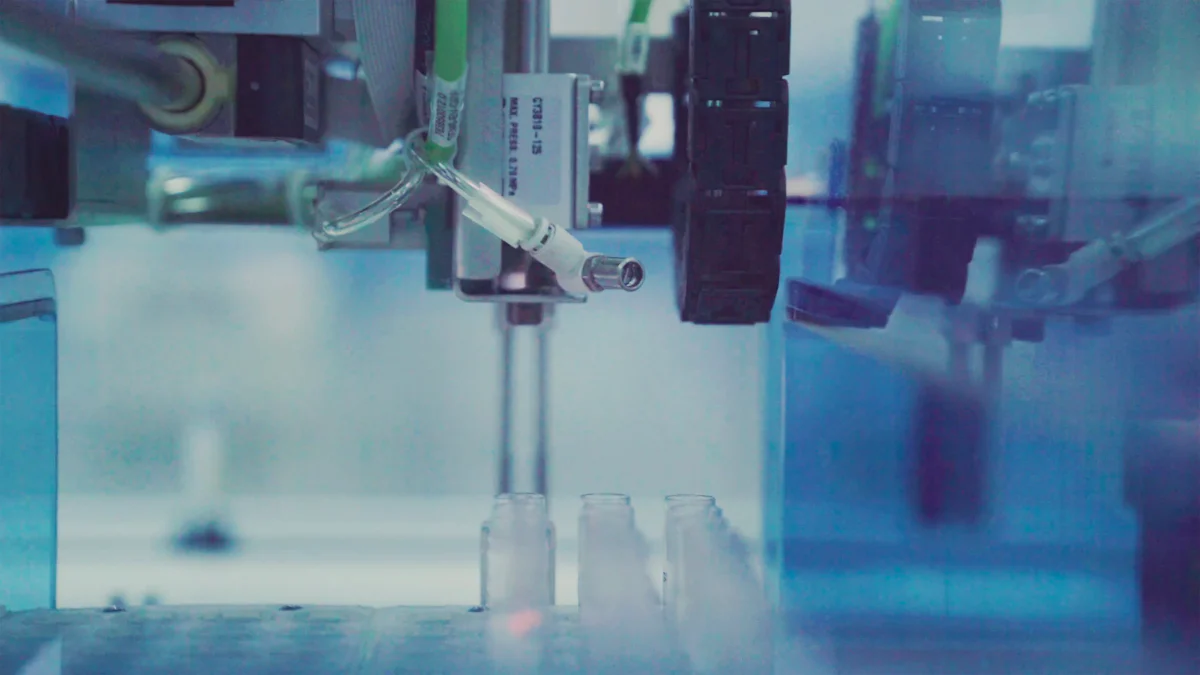
半導体業界を常に進化させ、PSS/ICPエッチング技術は例外ではありません。 キャリア設計の革新、新興プロセスとの統合、および自動化とAIの採用は、この分野の未来を形作ります。 これらの進歩と、半導体製造を変革する方法を見てみましょう.
PSS/ICPエッチングキャリアデザインにおけるイノベーション
次世代キャリアで使用される材料
次世代PSS/ICP エッチキャリアは、現代のエッチングプロセスの厳しい要求を満たすために、高度な材料で作られています。 シリコンカーバイド(SiC)や、熱抵抗や耐久性に優れたセラミックスなどの材料を使用しています。 特にSiCは、高温や腐食性環境に耐える能力に注目し、プラズマエッチング用途に最適です.
「シリコンカーバイド(SiC)は、電子機器やフォトニクス用途の有望な材料」 siCアプリケーションとプラズマエッチング技術に関する研究で強調されています。 精度の高いエッチング工程で用いられる運送業者の選定に適しています.
これらの材料は、キャリアの寿命だけでなく、エッチング中にウェーハの安定性を維持するための性能を向上させるだけでなく、。 摩耗および引き裂きを減らすことによって、それらは延長生産周期上の一貫した結果を保障します.
特定のエッチング用途のカスタマイズ
カスタム化はキャリアの設計の主傾向になりました。 メーカーは、深い反応イオンエッチング(DRIE)や高アスペクト・ラティオエッチングなど、特定のエッチング用途に適したPSS/ICPエッチングキャリアを注文できるようになりました。 このカスタマイズにより、キャリアは独自のウェーハの幾何学的およびエッチングの要件に対応できます.
例えば、HB-LEDの製作用に設計されたキャリアは、制御されたGaNエッチング中にウェーハを安全に保持するために、特殊な溝やスロットを備えています。 これにより、精密化を実現し、欠陥のリスクを低減し、特定の半導体アプリケーションに最適な結果を保証します.
新興半導体との統合 プロセス
3D構造と高度なノードとの互換性
半導体デバイスがより複雑になるため、3D構造や高度なノードを扱うことができるキャリアの必要性が高まっています。 PSS/ICP エッチキャリアは、ウェーハのすべての表面に均一なプラズマ露出を確保することにより、フィンフェッツや3D NANDなどの複雑な設計をサポートしました.
これらのチャレンジングなアプリケーションで精度を維持する能力は重要である。 アドバンストキャリアは、これらの次世代デバイスの機能性を損なうことなくエッチングを防ぐことができます。 この互換性により、メーカーは品質を犠牲にすることなく、最先端技術の要求を満たすことができます.
新しいデバイスアーキテクチャを有効にする役割
PSS/ICPの特長 エッチングキャリアは、新しいデバイスアーキテクチャを有効にして、ピボタル役割を果たしています。 エッチング中に安定したサポートを提供することで、メーカーは半導体技術の境界線をプッシュする革新的な設計を作成することができます。 たとえば、SiCベースのデバイスの製造に使用されるキャリアは、電力電子機器やフォトニクス用の高性能コンポーネントの作成を容易にします.
高度なエッチングシステムを備えたこれらのキャリアの統合により、最も複雑なアーキテクチャが精度で生成できることを確認します。 イノベーションを加速し、画期的な技術開発を支援します.
エッチングプロセスにおけるオートメーションとAI
センサー内蔵のスマートキャリア
オートメーションは、半導体業界に革命をもたらし、PSS/ICPエッチングキャリアは例外ではありません。 センサーを内蔵したスマートキャリアが市場に参入 これらのセンサーは、温度やアライメントなどの重要なパラメータをリアルタイムで監視します。 インスタントフィードバックを提供することで、エッチングプロセスを最適化し、エラーのリスクを減らすことができます.
たとえば、エッチングプロセスが始まる前にスマートキャリアが不整列を検出でき、オペレータは調整を行い、欠陥を回避できます。 自動化のこのレベルは効率を高め、大量生産環境でも一貫した結果を保障します.
AIによるプロセス最適化
人工知能(AI)は、次のレベルにエッチングプロセスをとっています。 エッチング中に収集したデータを分析し、パターンを特定し、プロセスパラメータを最適化します。 分散性を最小限にし、全体的な効率を改善します.
スマートなキャリアと組み合わせると、AIは生産に影響を与える前に潜在的な問題を特定し、予測的なメンテナンスを有効にすることができます。 たとえば、キャリアが摩耗の兆候を示している場合、システムは、ダウンタイムを防止し、途切れない操作を保証します.
反応性イオンエッチングに関するレビューは、高い視点で機能する技術の進歩の重要性を強調しています。 AI主導の最適化は、エッチングプロセスの精度とスケーラビリティを高めるため、この目標と完全に整列します.
オートメーションとAIを組み込むことで、メーカーは、プロセスをさらに制御し、廃棄物を削減し、進化する業界の要求を満たすことができます.
PSS/ICPの特長 エッチングキャリアは、高度な設計に精度、効率性、適応性を確保し、半導体製造において重要な役割を果たしています。 これらのキャリアは、プラズマエッチング中のウェーハの安定性を高め、一貫した結果と欠陥を削減します。 SiC処理やICP-RIEエッチングなどの最先端技術との互換性は、パワーエレクトロニクス、自動車、再生可能エネルギー分野におけるイノベーションをサポートしています.
キャリア素材やエッチング技術の進歩に更新される滞在は、競争力を維持することを目指しているメーカーにとって不可欠です。 これらのイノベーションを実践することにより、業界は、高品質の基準を維持しながら、次世代デバイスの成長需要を満たすことができます.

